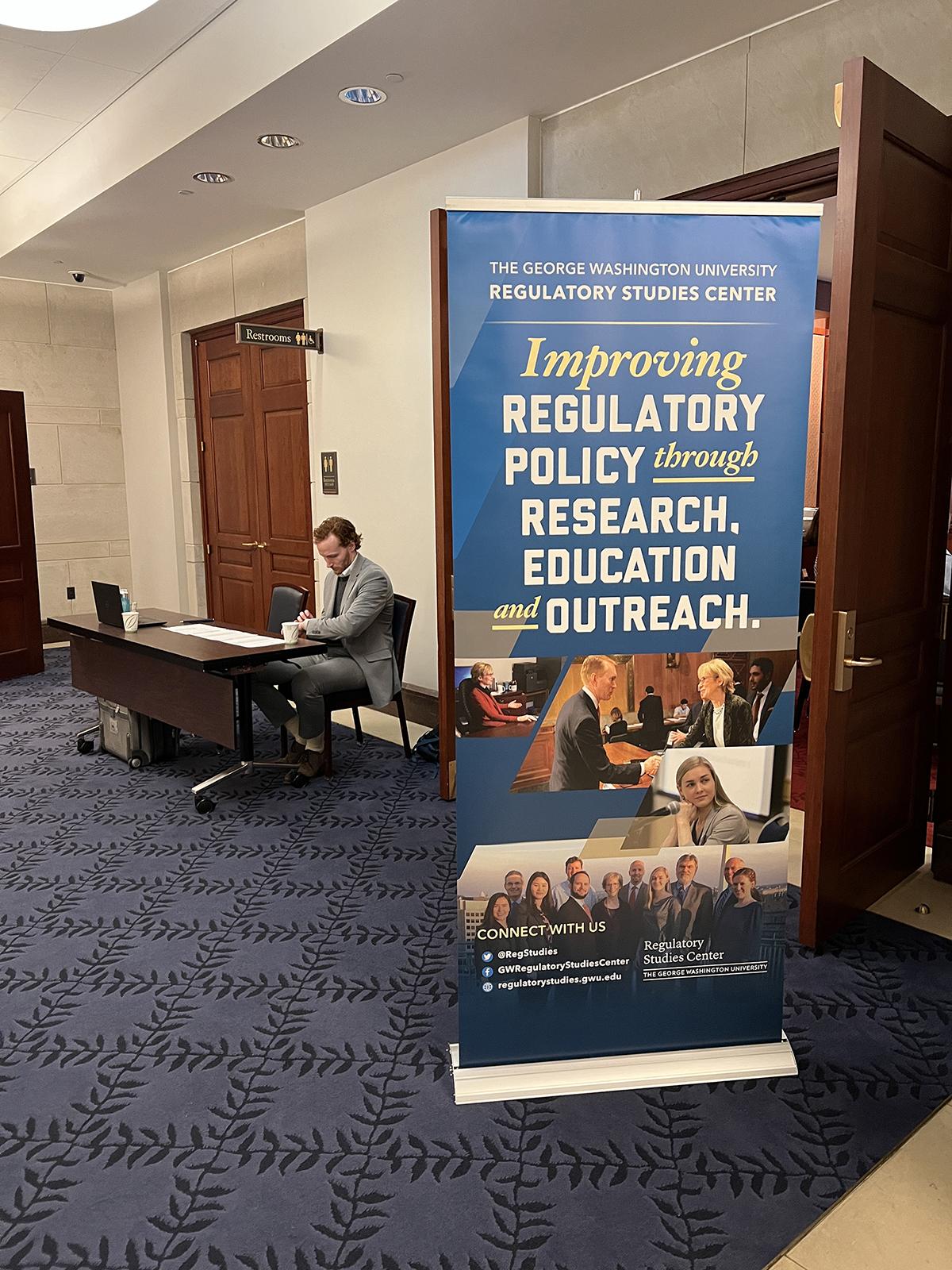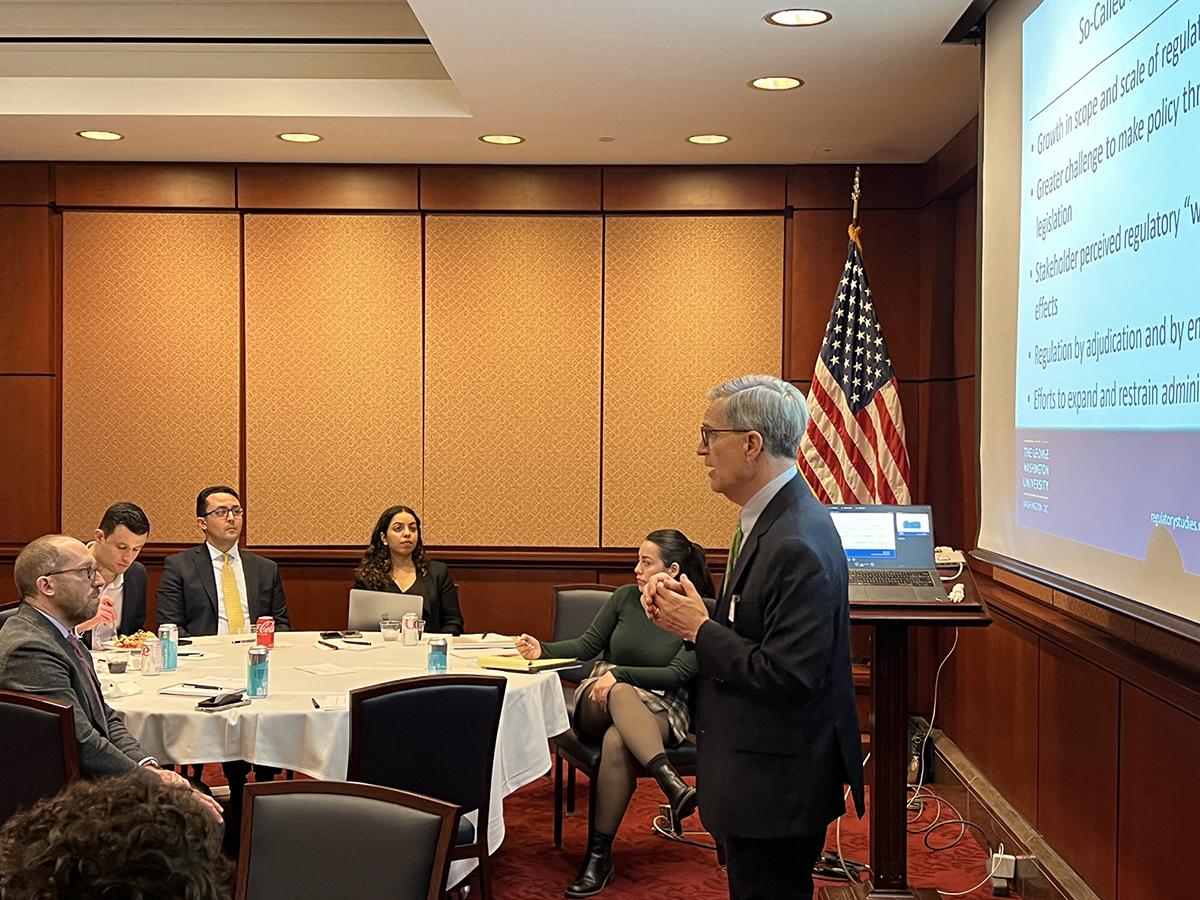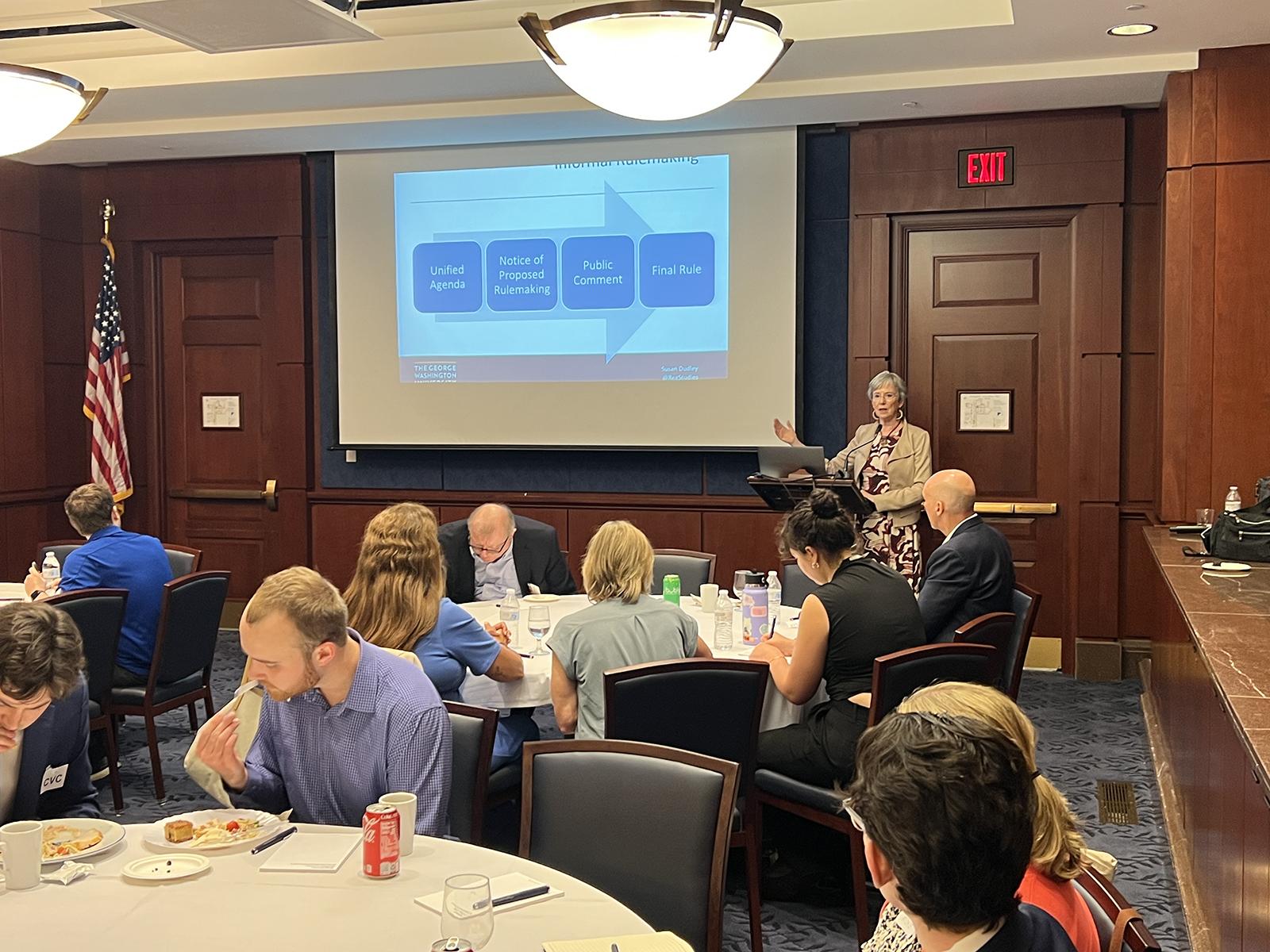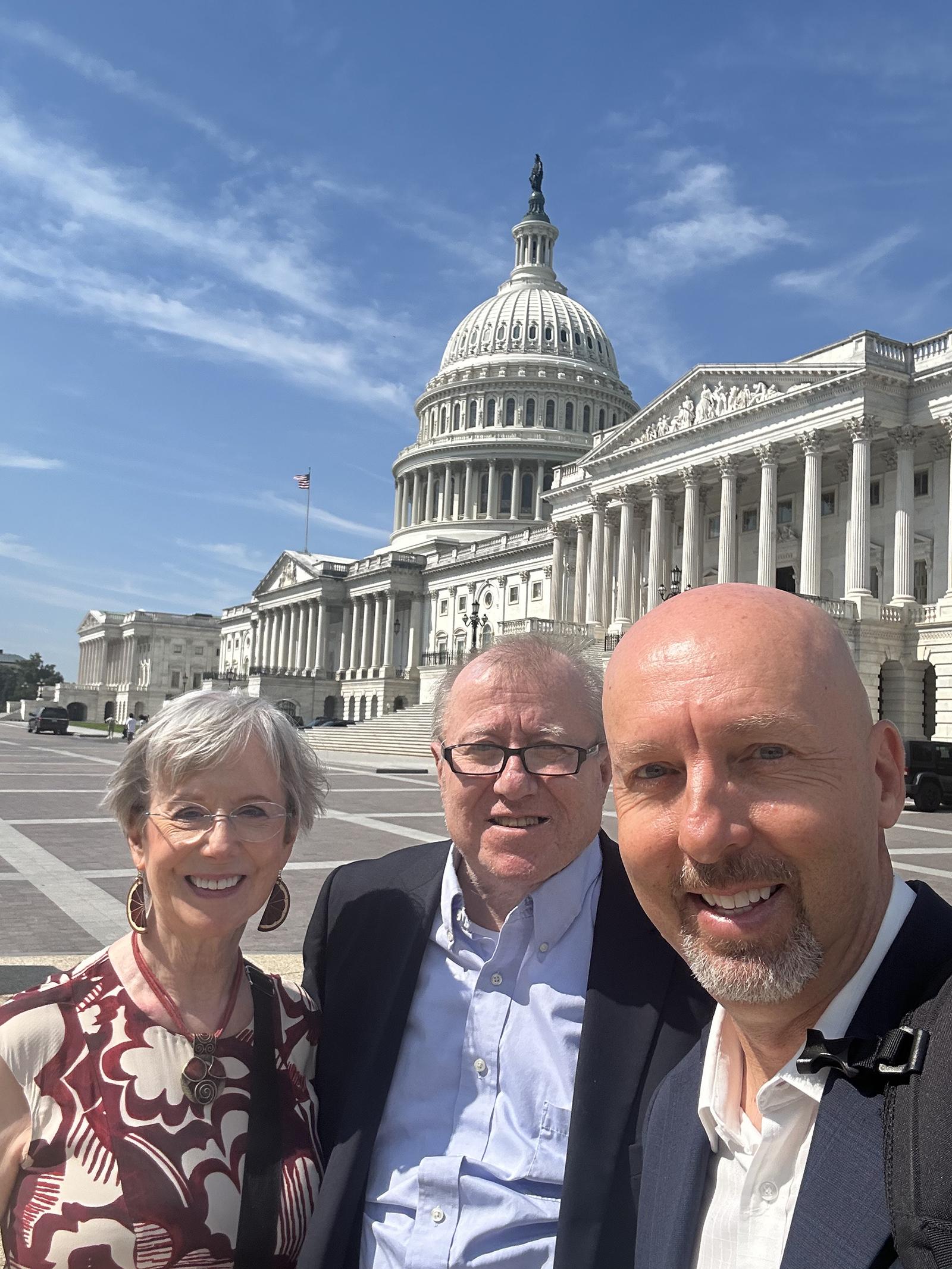Regulatory Policy and Practice Seminars Brings RSC Expertise to Capitol Hill
The Regulatory Studies Center was pleased to host a seminar series throughout spring and summer 2025 on Regulatory Policy and Practice for Congressional staffers at the U.S. Capitol Visitors Center. Professors Steven Balla, Joseph Cordes, Roger Nober and Susan Dudley presented the fundamentals of separation of powers, recent Supreme Court administrative law decisions, benefit-cost analysis, public engagement, regulatory procedure, the rulemaking process, agency structure and actions, and oversight.
The faculty members' public service experience provided unique perspectives on the challenges of regulatory policy and oversight. Nober was chief counsel to the U.S. House of Representatives Committee on Transportation and Infrastructure from 1996 to 2001. From 2002 to 2006, he was chairman of the U.S. Surface Transportation Board, an independent regulatory commission. Before she founded the Regulatory Studies Center and joined the GW faculty, Dudley served from 2007 to 2009 as the Presidentially-appointed Administrator of the Office of Information and Regulatory Affairs (OIRA) in the U.S. Office of Management and Budget and was responsible for the review of draft executive branch regulations.
Professor Balla’s research focuses on stakeholder participation in the development of regulations in the US and China. Balla has studied the notice and comment process, OIRA regulatory review, advisory committees and negotiated rulemakings, among other topics. Professor Cordes is a nationally-recognized scholar on the measurement of benefits and costs of government programs. Cordes has led many graduate student projects involving the application of benefit-cost analysis to a wide range of public and nonprofit sector programs.
Regulatory policy and administrative law are having a moment of heightened relevance as the Trump administration and his White House’s U.S. DOGE Service pledge to overhaul the federal regulatory agencies and the civil service workforce. While the administration issues executive orders and clashes with the judiciary and Congress over authority, businesses and other stakeholders have grown increasingly stressed about abrupt changes of the regulatory “pendulum” effect, and agency actions that can lead to regulation by enforcement and adjudication.
The seminar series was a great opportunity for the Center to engage with legislative staff at a time when regulatory process and administrative law are more relevant than ever for the public interest. The RSC team plans to offer additional seminars on Capitol Hill in the coming months to explore regulatory topics in further detail.












